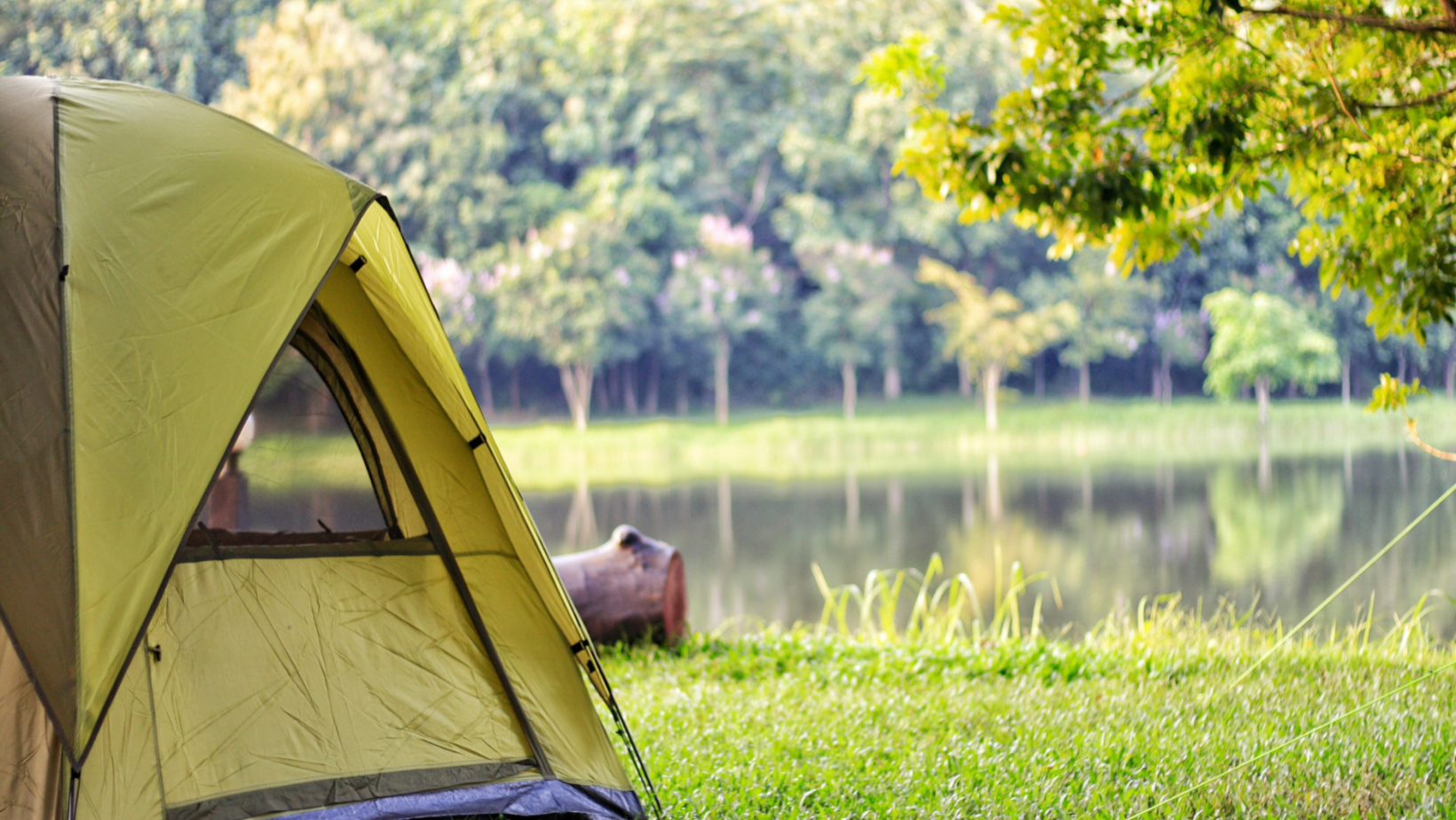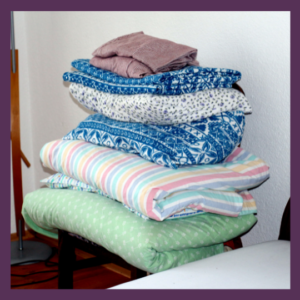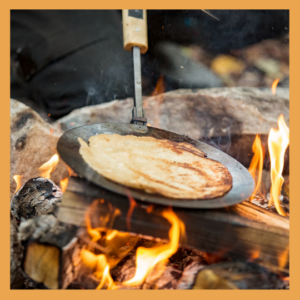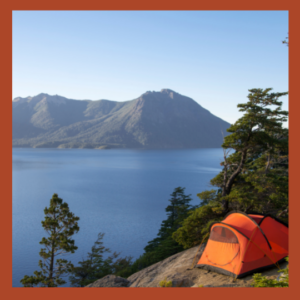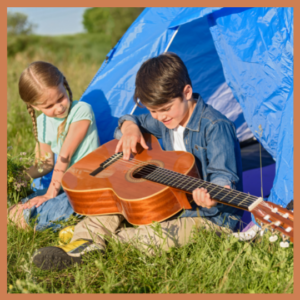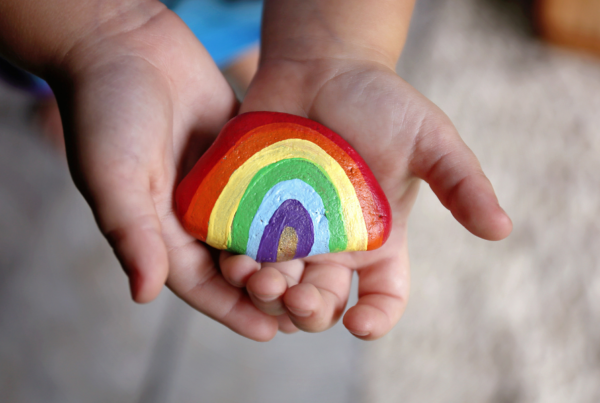Camping can be an enjoyable summer activity for every member of your family. When camping, you have a unique opportunity to connect with nature, get some fresh air, and unplug from technology. However, especially when you want to visit serene National Parks or iconic landmarks, paying to camp can become incredibly expensive.
There are many different tips for how to camp on a budget and still have fun. And we’ll discuss the best of them in the following sections. If you want to camp with your family but don’t want to break the bank, keep reading to get some exciting new ideas.
See Also: The Best Cheap Summer Vacation Activities for Kids
Buy Second-Hand Gear or Borrow
Let’s start first with the equipment. Camping gear can be super expensive. But there are three ways to avoid spending hundreds (or even thousands) of dollars on gear for your upcoming camping trip. The first is to invest in some second-hand equipment. Scour your local thrift stores for items like sleeping bags, tents, portable stoves, tarps, chairs, and more. Depending on what has been recently donated, you can find some real treasures!
The second option is to borrow. If you have friends or extended family who enjoy camping, see if they have any gear they would be willing to part with for your trip. Borrowing gear is an excellent option because it’s free! Just be sure to bring everything back in mint condition.
The third idea is to check for “free” or bartering groups online. There are many such groups across the country. And you will likely find some in your own neighborhood. These groups exist to keep unwanted items out of the landfill and match people with things they need. Check out sites like Nextdoor and Freecycle to see what’s in your area.
Bring Regular Bedding From Home
Bringing your own bedding from home is another way to save money on your camping adventure. Rather than buying pillows or sleeping bags just for camping, bring the things you already own! You’ve probably already got everything you need for you and your family to sleep comfortably on your trip.
If you buy bedding supplies specifically for camping, you may never use them again. And that’s a lot of cash down the drain. On the other hand, all it takes is a good wash cycle to get any dirt and germs from camping out of your home bedding.
Bring Your Own Food/Drinks
Going to local restaurants or buying food from the camp’s general store can add up fast. Some campgrounds are well stocked with snack bars and eateries. But that doesn’t mean you should visit them.
Rather than blowing your budget on meals and snacks, bring your own food from home and cook at your campsite. If you don’t have a way to keep your items cold, check out our homemade cooler idea! Besides, half the fun of camping is cooking over an open fire or camp stove!
Plan Meals Carefully
This idea goes hand-in-hand with the last tip. Be sure to plan your camping meals carefully when bringing food with you from home. You usually don’t buy groceries for the week without some kind of meal plan, right? The same goes for camping. Bringing a bunch of random food without planning how to prepare and eat it is a waste.
Instead, plan simple healthy meals and snacks that will leave your family feeling full and satisfied. This is not the time to splurge on junk food. That will only leave everyone irritable and with low energy. Camping can be a strenuous activity. So be sure to treat food as fuel!
Prepping food ahead of time can also make your trip more enjoyable. Check out Budget-friendly Ways to Meal Prep
Cook Meals Over A Fire
Bringing food from home requires that you have a way to cook it. You might have the money to invest in a portable gas stove or grill. But you can learn to cook over a fire instead. Cooking your meals over a fire can help your camping experience feel more rustic and authentic. And that can make the trip feel more memorable for you and your family.
The easiest foods to cook over a fire include:
- Hot dogs
- Corn on the cob
- Potatoes
- Kebabs
- Pancakes
- Grilled sandwiches
- Canned beans, soup, and chili
- Eggs and bacon or sausage
No need to run out and buy a camping cookbook, either. You can find lots of free and delicious campfire recipes just by doing a simple internet search.
Bring Your Own Firewood
To cook your meals over a fire, you will need a way to actually make the fire. Many campgrounds will offer firewood for sale, but it will usually come at a steep price, and it may not be the best quality.
Instead of risking the possibility of breaking your budget on firewood, or worse—not being able to find any—bring your own. Of course, you will want to check the regulations where you will be camping first. Some states do not allow visitors to bring firewood over state lines. This is to prevent the spread of insects and pests.
Forage Or Fish
Foraging for your meals can also help your camping experience feel more authentic and rustic. Whether that means you go fishing for your dinner, pick berries, or forage for some edible mushrooms, finding your own food can feel very rewarding. Plus, it’s a great way to teach your kids about nature and responsibility.
It goes without saying you should be knowledgeable about wild foods before heading out on a foraging excursion. Unfortunately, not everything that looks edible is. At the very least, borrow a book on wild edibles from your local library before using this idea.
Camp Somewhere With Natural Activities 
Many people go camping and spend hundreds of dollars on expensive entrance fees at National Parks and other activities. Rather than spending lots of money to get access to nature or entertainment, find a camping spot with many natural activities. For example, camp near some hiking trails, a lake, or a mountain you can climb.
Choose Campgrounds With Included Facilities
Many campgrounds will charge you exorbitant fees for entrance regardless of their facilities. If you want the most bang for your buck, seek out campgrounds with facilities included in their entrance fees. For example, many campgrounds will include showers, tennis courts, hiking trails, swimming ponds, or clubhouses with televisions. If you need to spend the money for an entrance fee at a campground, make sure your money is worth it for everything you will get out of the location.
Camp During the Off-Season
Rather than going camping during the busy summer months or on federal holidays, try camping during the off-season to save money and avoid the big crowds. During the shoulder seasons of spring and fall, campsites often charge less yet offer the same amenities. This tip is especially great for those who don’t like rustic camping and are looking for high-quality facilities at an affordable price.
Avoid National Parks And Popular Attractions
As we mentioned earlier, National Parks can have expensive entrance fees that you can avoid by camping somewhere else. While National Parks are incredibly appealing on a natural level, consider whether you could just drive to National Parks during the day while camping somewhere else at night. Additionally, there are many incredible natural landmarks that you can explore that don’t cost anything!
Related: 10 Budgeting Tips for Family Vacations
Closing Thoughts
Camping can be a fantastic activity, whether going solo or with friends and family. For those who don’t have don’t have deep pockets, camping can seem like a good, low-cost alternative to other vacations. However, many things can turn a cheap camping trip into an expensive vacation. By following some of the tips above, you can make your next camping excursion the stress-free experience it’s supposed to be without worrying about money.


